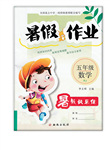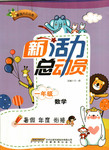题目内容
Are you a teenager1.(absorb) in music? If so, I will give you a warning --- the music you love could end up making you deaf. More2.(special), the way you listen to music you love could make you deaf.
The problem is headphones. In the past, we played music out into the air. Then earmuff-style (耳罩式) headphones3.(invent) and we were able to play music much closer to our ears. Now we have ear buds (耳塞),which many doctors think are4.(bad) than older headphones because they play music directly into the ears. Also, ear buds are not as good as blocking outside noise, so people5.use them may turn the volume6.to dangerous levels.
What’s dangerous level? Well, it7.(depend) on how long you are going to listen to the noise. This is the next problem. Very, very loud sounds can be dangerous to your hearing even if you only listen to them for a few minutes. But scary8.(true) is that even “normal” seeming noise can be dangerous9.you listen to it all the time.
Think for a minute about how long you spend10.(listen)to loud noises with headphones every day. Then do some research. There are resources online to tell you what volumes are safe, and for how long. Don’t take your hearing for granted.
 暑假作业暑假快乐练西安出版社系列答案
暑假作业暑假快乐练西安出版社系列答案 新活力总动员暑系列答案
新活力总动员暑系列答案 龙人图书快乐假期暑假作业郑州大学出版社系列答案
龙人图书快乐假期暑假作业郑州大学出版社系列答案

 up and become successful, because I hated my one-eyed mom and our poverty.
up and become successful, because I hated my one-eyed mom and our poverty.